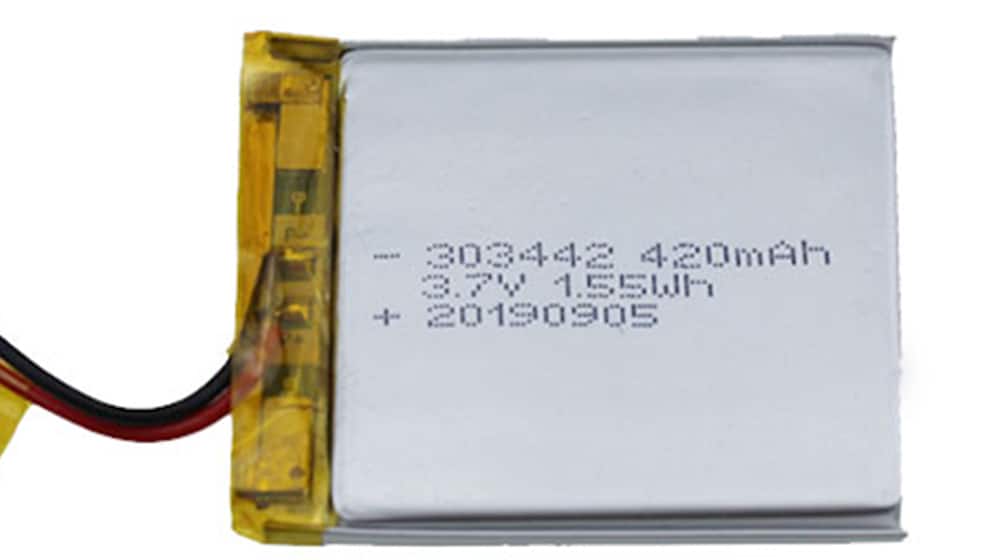- Curved Lithium Polymer battery
- Fast Charge Polymer Battery
- Flexible Polymer Lithium Battery
- Ultra-thin Polymer Battery
/ Blog / Battery Knowledge /
Lithium polymer batteries are the most popular type of rechargeable battery for portable electronic devices. These lightweight, thin cells offer long life and high power density. But what is a lithium polymer battery? How do they work? And how can you use them effectively in your electronics? Keep reading to learn more about these important batteries and how they can improve your life.
What is a Lithium Polymer Battery?
Lithium polymer batteries are lightweight, thin cells that are rechargeable. They offer long life and high power density.
Lithium polymer cells are made up of a polymer electrolyte, an anode and a cathode, which produces a chemical reaction when the battery is in use. The chemical reaction creates a flow of electrons from the anode to the cathode across the external circuit. This process creates electricity and stores it in the battery.
How Do They Work?
Lithium polymer batteries are thin, lightweight cells that use a polymer (plastic) as the electrolyte. Lithium ions move freely through this medium, which are then stored in a carbon compound cathode (negative electrode). The anode is typically made of carbon and oxygen, while the lithium ion enters the battery at the cathode. When charging, lithium ions travel from the anode to the cathode. This process releases electrons and creates electricity.
How to Charge and Store Lithium Polymer Batteries
Lithium polymer batteries are safe to charge and store, but they do have a few important guidelines that you need to know.
-Charge your batteries after each use.
-Do not leave your lithium polymer battery in the charger for an extended period of time.
-Do not store your lithium polymer battery in temperatures above 75 degrees Fahrenheit.
-Seal unused lithium polymer batteries in a plastic bag or airtight container to keep them from the elements.
How to Extend the Life of Your Battery
One of the most important aspects of lithium-polymer batteries is that they can be recharged. This extends the life of your battery and saves you from replacing it as often, which saves you money. Lithium-polymer batteries also have a lighter weight than other types of batteries, so you can use them in a variety of electronics without adding too much weight to the device. But what should you do if your battery starts running low or dies? You’ll need to learn how to charge and store your battery properly, so it lasts longer and stays healthy.
Lithium polymer batteries are becoming more and more popular in the modern world. They are lightweight, durable and can be used for a variety of purposes. But, as with anything, you need to take care of them. By following the tips in this article, you can extend the life of your battery and make it last for years to come.
Prev: Lithium polymer battery
Next: Lithium polymer battery




